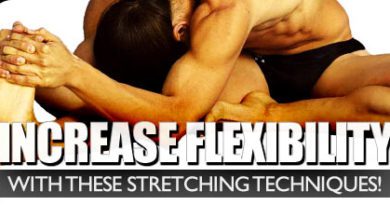Consider a Kinesiology Degree If You Love Health & Fitness
Do you live an active lifestyle? Were you an athlete growing up and want to do something for the rest of your life that you’ll enjoy? Consider getting a degree in kinesiology.
What is kinesiology? Kinesiology is the study of movement through understanding anatomy, physiology, and mechanics.
First and foremost, I want to be transparent that I went through the program at Penn State many moons ago to get my degree in kinesiology, and it was one of the best decisions I’ve ever made.
Why Consider Getting a Degree in Kinesiology?
A degree in kinesiology can go in many different directions. What you need to figure out is what direction you want to go with your degree. For instance, with a degree in kinesiology, you can become:
- A physical education teacher
- A personal trainer
- A strength and conditioning coach
- A physical therapist
- A chiropractor
- A cardiac rehabilitation specialist
- An occupational therapist
- An athletic trainer
Now, the above are just examples — you can take a degree in kinesiology in other areas as well, those are simply the most popular listed. What you need to figure out is where your passion is. If you like the idea of helping kids and having summers off, go the route of becoming a physical education teacher. Like training athletes? A strength coach may be a great career choice. Like rehabilitating athletes? Maybe athletic training or physical therapy is your thing?

Something else to consider is the setting you want to work in. Depending on the path you choose, do you want to work in a hospital or clinic? Do you want to work in a gym or own your own personal training studio? Do you want to work in a public school or a private school? Maybe you should read a kinesiology book first to see if you even like the topics?
The point is, figure out what you enjoy and what would make you happy. There’s nothing worse than waking up every day hating your job. Therefore, don’t be afraid to go shadow some of these professions as well to see what a “day in the life” looks like to see if it’s something you would enjoy. Go multiple days (even a week) so you get a good feel for what that career entails.
Related Article: Skills vs. Education — Do You Need a College Degree Today?
The one thing that should be made clear is that a degree in kinesiology alone may not get you into the profession you want from the list above. For instance, additional schooling is needed for physical therapists and physical education teachers. However, everything above stems from the kinesiology degree.
If you think you know what direction you want to go, do some extra research and find out what colleges have to offer and what the plan looks like for going into certain fields. You could even call a college and speak to someone if you want to learn more about their program and have some literature mailed out to you or sent to you via email.
What School(s) Should You Apply to For Kinesiology?
That’s, unfortunately, not a simple question to answer. There are so many colleges and universities out there that have kinesiology in their available degrees that you truly need to sit down and figure out the type of school you want to attend and how much you’re willing to pay. Tuition is all over the board, from state to state and even from satellite campus to satellite campus. For as many large universities that allow you to get a degree in kinesiology, there are just as many smaller schools where you can get a similar education at a fraction of the cost. It also comes down to if you want to go out of state or stay in state. Do you want to live at home or stay on campus? There are quite a few questions you need to answer to narrow down your choices.
As mentioned above, I got my degree from Penn State, and this isn’t a sponsored article by Penn State, but I wanted to share where I went, and that I thoroughly enjoyed my time and learning experience at Penn State. The professors were incredible, and some of them I still speak to (over 10 years after graduating).
Related Article: How Bodybuilding.com Can Propel Your Career Like It Did Mine
The degree in kinesiology gave me a wealth of knowledge to transition from a personal trainer to a strength and conditioning coach, to a regional and then national manager of a large supplement company, and ultimately owning my own businesses in the industry. My knowledge from my kinesiology degree helps me get results with my clients and grow my business.
How Much Should You Expect to Make After Graduation?
Once you graduate with a degree in kinesiology and get a job, the salaries can vary greatly. Upon investigation and to get a more definitive answer, Salary.com has provided the average salary for the following career choices below:
- Physical Therapist: $70,000
- Personal Trainer: $40,000
- Chiropractor: $57,000
- Strength and Conditioning Coach: $38,000
- Athletic Trainer: $46,000
- Occupational Therapist: $65,000
- Physical Education Teacher: $43,000
Being that the above yearly salaries are a national average, those figures could be higher or lower depending on your location, the demand, your schooling, your experience, and even how hard you work. For instance, a personal trainer who doesn’t work hard and doesn’t continually bring on new clients can make very little money. A personal trainer who hustles and is the best at what he or she does can continually grow their list of clients and can earn well over six figures per year.
Do You Need a Kinesiology Degree to Become a Personal Trainer?
The short answer is no. However, on top of having my degree in kinesiology, I am also a certified personal trainer, certified strength and conditioning specialist, and a certified sports nutritionist. Common theme? “Certified.” You don’t need a degree to be any of those things. With that being said, you WILL NOT get the same “education” reading a manual as you would be getting a degree in kinesiology. The preparation for the certifications was a joke compared to what I had to go through when getting a degree in kinesiology.
Generally speaking, if you were to put someone who was only certified up next to someone who has a degree in kinesiology and test them, the individual with a degree will almost always be more knowledgeable (unless the other individual has done extensive reading and research on their own)
If you were to go the route of skipping a degree in kinesiology to save money (unless you get a scholarship), you’re going to have some debt from going to college. Even if you pay it off in full, you’re still out that money until you get a job and have the ability to make up the money from your investment). Should you only want to get your certification, you will want to choose a highly respected certification company such as ACE, NASM, ISSA, ASCM, or NSCA.
Related Article: A Closer Look at Fitness Certifications
Hopefully, this gave you a better look and idea about getting a degree in kinesiology and whether or not it’s something you want to pursue.


*Disclosure: This article may contain affiliate links or ads, which means we earn a small commission at no extra cost to you if you make a purchase through these links. These commissions help support the operation and maintenance of our website, allowing us to continue producing free valuable content. Your support is genuinely appreciated, whether you choose to use our links or not. Thank you for being a part of our community and enjoying our content.
PLEASE CONSIDER SHARING THIS ON YOUR SOCIAL MEDIA TO HELP OTHERS LEARN MORE ABOUT THIS TOPIC.





